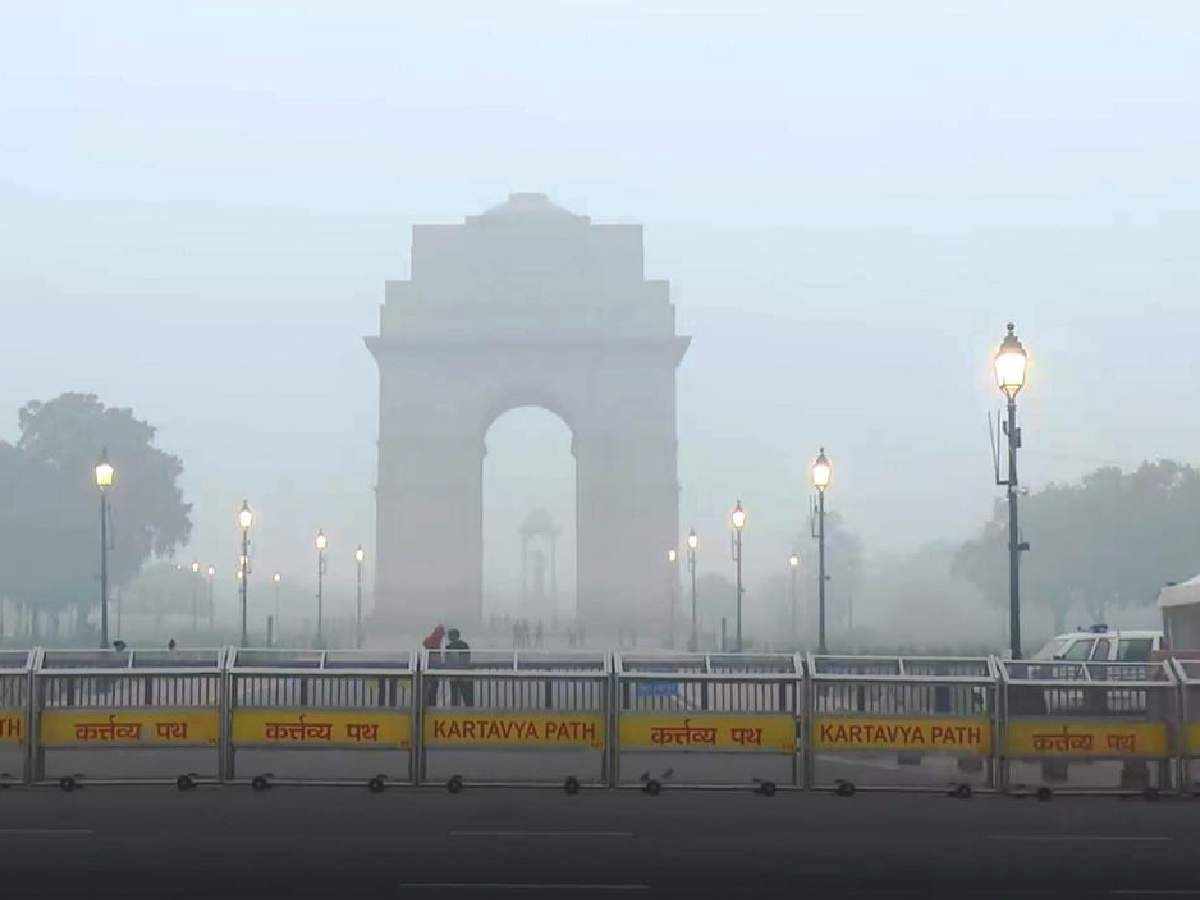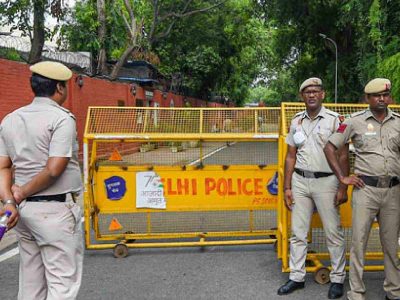Delhi Pollution: The Delhi Pollution Control Committee (DPCC) is grappling with a severe staff shortage, hindering its ability to implement critical pollution control measures in the national capital.
According to sources, the pollution control board’s functioning has been hit due to staff shortage. The DPCC is working at nearly half of its sanctioned strength — 344 employees.
The department, which is primarily responsible for mitigating pollution in the national capital, currently has 191 employees, while 153 posts are lying vacant, sources added.
The shortage of personnel raises serious concerns about the DPCC’s capacity to address the urgent health crisis in the national capital.
Also read: Delhi’s Toxic Air: 1 in 3 children suffer from respiratory illness, nebulizer sales soar amid crisis
According to a Right to Information (RTI) query accessed by Patriot, the DPCC faced staffing challenges earlier in 2023, with 192 vacant posts out of 344 sanctioned positions. By the end of the year, the working strength included 111 regular employees and 122 contractual or outsourced staff, leaving 111 posts still unfilled.
The RTI further revealed that in 2021, the DPCC’s working strength stood at 151, with no recruitment of frontline staff conducted and no proposals submitted to augment staffing levels. The situation was even worse in 2020, with only 103 positions filled out of a sanctioned strength of 344. During this period, no efforts were made to address the shortage or propose an increase in the sanctioned strength.
Issue raised before Delhi’s LG
A report submitted to the Lieutenant Governor of Delhi (LG) Vinai Kumar Saxena by the DDMA also stated that the major obstacle faced by the agencies is a shortage of staff, which leads to a non-optimal number of on-site inspections. This observation came after a review meeting of the measures taken on the ground to combat the air pollution crisis.
DPCC, the state-run pollution control board, is the primary agency responsible for combating pollution in the national capital. However, the shortage of personnel in the department has overshadowed the government’s commitment to reducing air pollution, which has become the city’s biggest enemy. This also raises serious concerns about its capacity to address the environmental emergency effectively.
Green War Rooms also struggle
The ‘Green War Rooms’ run by the Delhi Government to tackle the air pollution crisis in the national capital are also struggling with inspection staff. Their work involves tracking residents’ complaints about air pollution, monitoring the action taken, and overseeing identified hotspots in the city.
As per a source in the Green War Rooms, “We don’t have the staff to inspect the complaints resolved by the concerned agencies. In 2023, we had more than 13 teams, each comprising three officials, to inspect the site and the action taken by multiple agencies over the complaints.”
Blaming the removal of Civil Defence Volunteers (CDVs), the source said this has significantly affected the effectiveness of the Green War Rooms, as these CDVs were part of the inspection teams.
“How can one expect complaints to be reviewed effectively without even the minimum required staff?” asks environmentalist Varun Gulati. “The number of vacant posts in the DPCC remains critically high, especially at a time like this, highlighting the lack of urgency and commitment to addressing air pollution. This is a public health emergency, yet it is clearly not being treated as one.”
Introducing ‘green apps’ and establishing ‘green war rooms’ will achieve little without sufficient manpower on the ground to monitor and manage pollution levels. Even as of now, with Graded Response Action Plan (GRAP) 4 imposed, most authorities are struggling with limited numbers, equipment, and standard operating procedures.”
Doctors warn as AQI worsens
As Delhi’s Air Quality Index (AQI) drops to “hazardous” levels, cases of pollution-related illnesses are surging at Aam Aadmi Mohalla Clinics across the city. These free community health centres, designed to provide accessible healthcare, are witnessing a notable increase in patients suffering from pollution and seasonal ailments.
As Delhi’s Air Quality Index (AQI) drops to “hazardous” levels, cases of pollution-related illnesses are surging at Aam Aadmi Mohalla Clinics across the city. These free community health centres, designed to provide accessible healthcare, are witnessing a notable increase in patients suffering from pollution and seasonal ailments.
A ground report by Patriot revealed that many residents are seeking treatment for symptoms like itchy eyes, sore throats, and acute bronchitis. According to a doctor, who requested anonymity, “We’re seeing around 50 patients daily with pollution related symptoms, compared to the usual 15–20 during summer.”
The clinics are reportedly well stocked with essential medicines such as Azithromycin for treating these conditions. The doctor added, “In nearly 99% of cases, we are able to provide the required medication, with only about one in a hundred cases facing shortages.”
“In Delhi, air pollution poses a severe health crisis, equivalent to smoking about 25 to 30 cigarettes a day,” warns Dr Neetu Jain, Senior Consultant, Pulmonology, Critical Care, and Sleep Medicine, PSRI Hospital, New Delhi.
“Even healthy individuals are experiencing respiratory issues like coughing, wheezing, and shortness of breath, with some cases severe enough to require hospital admissions,” she pointed out.
Dr Jain emphasises the grave impact on individuals with pre existing respiratory conditions. “For those already dealing with respiratory problems, the situation is dire. We’re seeing more cases of acute exacerbations, increased reliance on medications, and even ICU admissions,” she noted.
“Studies suggest this alarming air quality can reduce life expectancy in Delhi by up to 7.8 years,” Dr Jain said.
“The repercussions extend beyond the lungs. Air pollution doesn’t just harm the respiratory system. It also affects the heart and other organs, leading to elevated blood pressure, heart attacks, strokes, and even cognitive impairments. Intelligence levels can be impacted as well,” she explained.
Dr Jain also highlighted the effect on unborn children. “Toxins inhaled by mothers can enter the bloodstream, cross the placenta, and harm the fetus, causing growth retardation and mental health challenges,” she stated.
“Delhi’s air, laden with ozone, carbon monoxide, sulphur, and nitrogen dioxide, is dangerously unsafe for everyone,” she said.
She concluded, “This is not just a public health issue; it’s a dire threat to life and well-being for Delhi’s residents, demanding immediate action.”
Also read: Delhi Pollution: Why PM2.5 matters more than the AQI
Dr Sameer Punia, Senior Consultant- Paediatrics Intensivist, Aakash Healthcare, New Delhi, echoed the same concern: “According to the WHO, an AQI above 25 is considered unsafe, yet we are living with levels exceeding 700-800. This alarming situation severely affects children’s physical and mental development and should be treated as a public emergency since the air we breathe is far from clean.”
“Our AQI has been soaring above 400-500 in the last few days, which is equivalent to an adult smoking a pack of 30 cigarettes a day. This is causing significant damage to children’s health. In our OPD, we are witnessing numerous cases of lung problems, with children experiencing chest congestion. Those undergoing asthma treatment or suffering from severe allergies are being admitted directly to the ICU. The polluted air is increasing lung infections and exacerbating chest congestion, which, in the long term, reduces children’s life expectancy,” said Dr Punia.
“Pollution is also impacting children’s mental health, as they are unable to go outdoors and are confined to their homes, leading to excessive screen time that hampers brain development. Furthermore, it increases the risk of stomach infections and causes long-term lung damage,” Dr Punia added.





